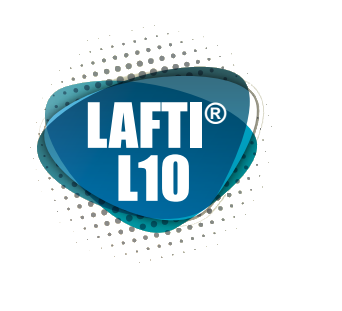
New results published on LAFTI® L10 in athletes
Show a positive effect on antioxidant status and interesting results on LDL-cholesterol
Investigating the benefits of probiotics for natural defenses in sportsmen and women
In 2016, a randomized, double-blind placebo-controlled study was conducted on healthy elite athletes during winter to evaluate the clinical and immunomodulatory effects of the unique probiotic strain L. helveticus LAFTI® L10 [1]. The 39 elite athletes enrolled in the study were aged 18-28 years and would train themselves for over 11 hours per week in various sports. They followed the probiotic treatment, or placebo, during 14 weeks in winter period.
The study showed that L. helveticus LAFTI® L10 supplementation, significantly shortened by 3.4 days the average duration of URTIs[1]– like episodes (p<0.05) and significantly decreased the number of symptoms by around 29% (p<0.05). These observations were confirmed by a significant modulation of several biomarkers for immunity measured in serum samples as the CD4+/CD8+ ratio, confirming Clancy et al. results [2].
A first post-hoc analysis investigated the impact of LAFTI® L10 on the immunoglobulin in saliva and in serum [3].
New results on antioxidant status
This month, a new post-hoc analysis has been published [4]. This new statistical analysis focused on 22 male participants and looked at both pro-oxidative parameters and anti-oxidative parameters to assess the general oxidative stress. At the end of the study, significant attenuation of the markers of oxidative stress (MDA and AOPP) and an increase in the marker of defense against oxidative stress (SOD) were observed in the LAFTI® L10 group and not in the placebo (p<0.05).
These new results suggest an antioxidant potential of L. helveticus LAFTI® L10.
Interesting preliminary results on HDL and LDL-cholesterol
Total cholesterol levels, HDL-cholesterol levels, and LDL-cholesterol have been monitored in serum samples.
After 14 weeks, the total level of cholesterol decreased in the probiotic group (p=0.045), HDL-c decreased (p=0.008), and LDL-c decreased (p=0.004) in the LAFTI® L10 group compared to initial probiotic baseline but not compared to placebo.
Lack of significance in inter-group biochemical measurements may be due to the heterogeneity between the participants at baseline, as seen on the standard deviation, and to the low number of participants.
These results are really interesting and encouraging further research on a larger panel of participants.
- Marinkovic, D.M., et al., L. helveticus Lafti® L10 supplementation modulates mucosal and humoral immunity in elite athletes: a randomized double-blinded placebo-controlled trial. Journal of strength and conditioning research/National Strength & Conditioning Association, 2016.
- Clancy, R.L., et al., Reversal in fatigued athletes of a defect in interferon gamma secretion after administration of Lactobacillus acidophilus. Br J Sports Med, 2006. 40(4): p. 351-4.
- Michalickova, D.M., et al., Lactobacillus helveticus Lafti L10 Supplementation Modulates Mucosal and Humoral Immunity in Elite Athletes. Journal of Strength and Conditioning Research, 2017. 31(1): p. 62-70.
- Michalickova, D., et al., Effects of Probiotic Supplementation on Selected Parameters of Blood Prooxidant‐Antioxidant Balance in Elite Athletes: A Double‐Blind Randomized Placebo‐Controlled Study. Journal of Human Kinetics, 2018. 64(1): p. 111-122.
[1] Upper Respiratory Tract Infections
